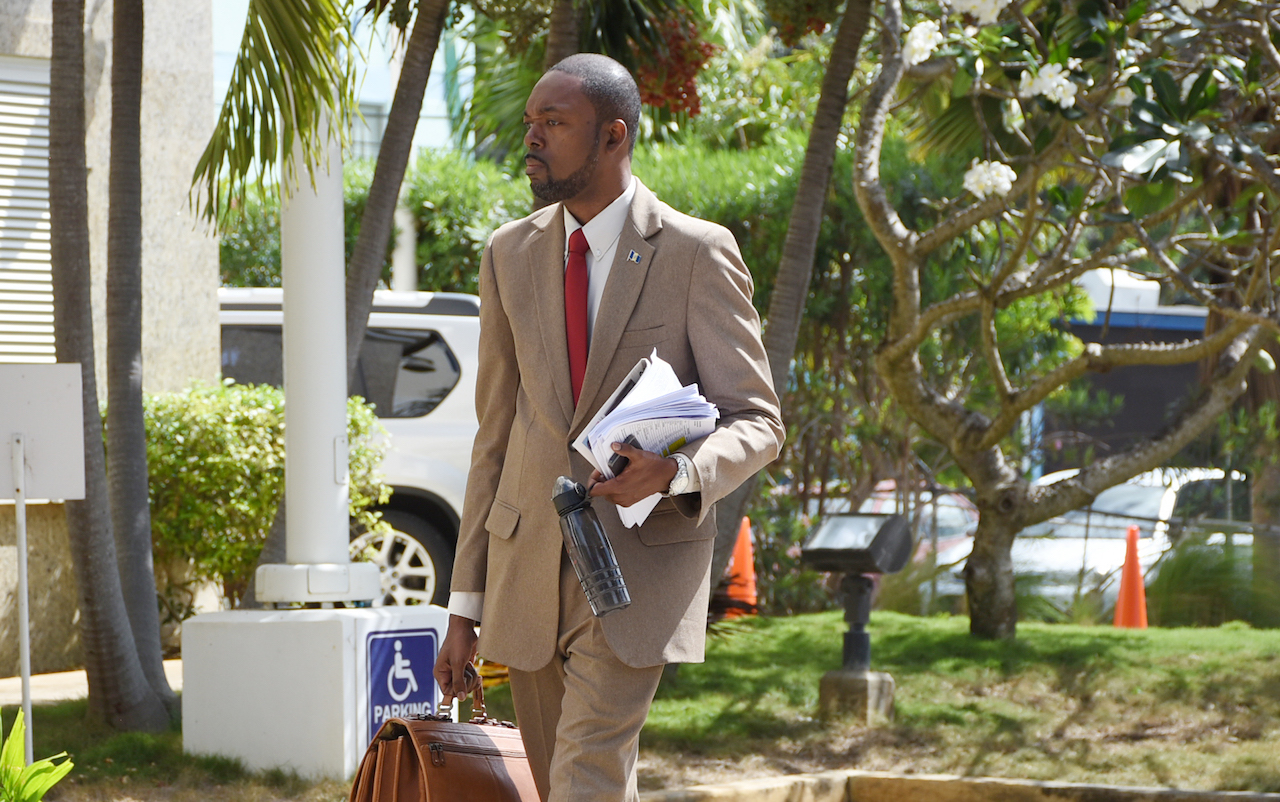Declaring that too many employers in Barbados are mistreating their workers, Minister of Labour and Social Partnership Relations Colin Jordan has served notice that he will be using the force of the law as a weapon against perpetrators.
Responding to questions in the Well of the House of Assembly as the Chamber discussed the 2020-2021 Estimates of Revenue and Expenditure today, he singled out some employers in the construction sector as being among the offenders.
And he revealed that a Protection Against Discrimination at Work Bill will be tabled in Parliament in the coming month, followed by a Recognition of Trade Union Bill.
“We have a draft Protection Against Discrimination [Bill] [which] is one of those areas where workers have been finding difficulty in their work place…being discriminated against for all kinds of reasons. That Bill has now been approved by Cabinet for submission to Parliament, and that will be debated sometime soon,” the Labour Minister said.
“These are the tools that we are using. There are many other pieces of legislation that have to be worked on. Sexual harassment at work…we were instrumental in getting that convention passed at the International Labour Conference last year. That adds a dimension to our Sexual Harassment Act. It widens it; it offers more protection.”
Jordan said Government was working to either have the existing legislation beefed up or embrace new legislation.
He noted that the proposed laws underlined Government’s stated policy that it would not be accepting investment at any cost.
“We have in construction – and this is a matter that has been occupying the attention of the Ministry…and it is a matter that I am very concerned about – the hiring of workers in the construction sector and the designation of those workers as sub-contractors,” Minister Jordan said.
He noted that this was being perpetrated even though normal labour practice and understanding make a distinction between contract for service and contract of service.
“We are of the view that some of our construction establishments have been taking advantage of people in that regard. One of the pieces of legislation that we are reviewing is that which governs the Labour Department,” said Jordan.
He noted that that Department has limited power to address some of those matters on its own, but it has the authority to go into businesses and ask for records.
“And every time we get complaints, we ask persons [if they are] willing to step forward and bring a face that we can support. And, often, persons are reluctant to do that,” Jordan added, though stressing that other means of tackling bad labour practices would be pursued.
“We have to work on the legislation angle, but we also are going to use competition to assist in that. By that, I mean there is increasing competition for workers and the labour that workers bring to the table. Business analysis tells you the supply and demand will cause some things to happen.”
He suggested that in order to attract better workers, businesses would have to offer something others were not providing.
The Minister said Government’s drive to bring economic activity and good investment to the country would help in that regard.
“But we are also working on trade union recognition. That is a manifesto pledge and that is a pledge from which we will not resile. We will be working on bringing trade union recognition [legislation]. The reason why we have to bring trade union recognition [legislation] and why we have to strengthen the Act that governs the Labour Department is because, as a Government, we recognize that the power relationship in the work place is not even,” he said.
Jordan contended, therefore, that there was the need to bring some equity to the table.
He said while the use of moral suasion was good, the force of legislation was necessary to strengthen Government’s hands.
“The approach to these matters is not singularly focused. But we are using different aspects of the power of the State to make sure that our workers are well treated. And I want to take this opportunity to appeal again to employers to treat their workers as people,” Jordan cautioned.
“Those who provide labour are people. They are human beings just like any employer…to be respected. And it has to be understood that they come to the work place, not as machines with algorithms inside of them, but people…,” he said.
Jordan also responded to an intervention by Chairman of Committees Dr Sonia Browne who asked if the measures would cover offshore companies based here, some of whom she complained have problems paying overtime and docked workers’ pay for bathroom breaks.
The Labour Minister gave the assurance that the legislation and other measures would include such companies.
“We are looking at all of those, especially in situations where the workers have not been organized [unionized] and situations where there are persistent efforts to stop them from organizing. We have establishments that when workers are subject to the matters that you [Dr Browne] have identified and they attempt to come together to address them, then sometimes reasons are found to get rid of them,” he disclosed.
Jordan also revealed that draft instructions for regulations to support the Safety and Health at Work Act have been sent to the Chief Parliamentary Counsel.




